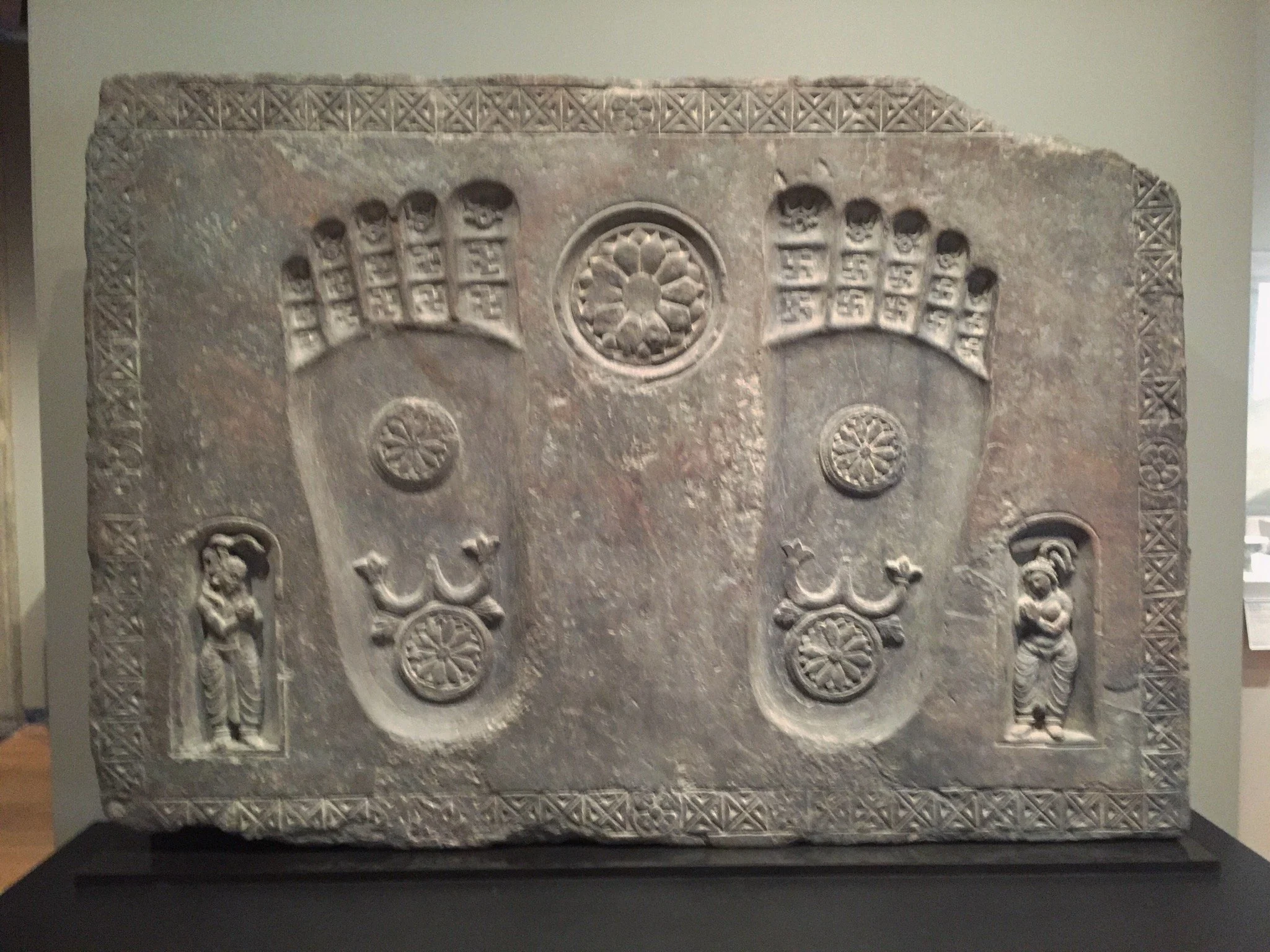When we bow to one another we are bowing into respect not only to the person present before us but to their higher self, their inherent Buddhahood.
When we bow to the statues and tapestries in our temples and Zen centers we are not bowing to gods, or saints, and we are not bowing to an entity that will bestow something on us.
We are bowing in respect to the person we are as we stand there, and to our inherent Buddhahood. We may also be bowing to the path which we trust will lead us through practice to the same realizations as those practitioners who came before us.
Many students (and teachers) find it hard to make it through the long lists of saints, spirits and Bodhisattvas who attend the Buddha’s sermons in sutras such as the Avatamsaka or Vimalakirti Sutras. Many of us do not believe in the multiple heavens with their populations of enlightened beings, but many do. In either case this can be a distraction to understanding the full meaning within the sutra, or even making it past such a litany without glazing over or skipping to “the good parts.”
So why are they even there?
To look at life with an attention and awareness that allows us to fully experience our lives is hardly a Buddhist idea; it is our birthright as earthlings. The more we look the more we see—trees, that ant struggling to get out of a wet sink, your neighbor who briefly betrayed a sadness in their eyes. What Buddhism does do, especially in the Bodhisattva path, is turbocharge that access to the narrow of life; it obligates one who makes such a vow to walk as willingly into the fire as into the light.
We can try to look at all those beings and each with their notable attributes as a kungan, or as an opportunity for more respectful bowing.
The Bodhisattva Who Sings in the Rain or The Bodhisattva of Heavenly Fragrance or the Bodhisattva Who Gears the Cries of the World may not literally exist; but for those of us who have taken the Bodhisattva Vows, we share in potential those attributes with them. We can recite or study those lists of beings as if reading about yourselves. And of course it is impossible to feel compassion for the world, to hear the world, if we don’t first hear ourselves. I wouldn’t recommend bowing to yourself in public, but I would without reservation encourage it in private. Maybe in the shower, with water as a witness.
Like Kwanseum Bosal, we also hear the cries of the world. Her presence and comfort are a chant or a statue away; as Bodhisattvas we are listening in real time, acting as needed, hearing that need everywhere.
But whether or not you have dedicated your practice to responding to the world’s pain with understanding and action, I bow to you. To see and respond fully to the needs of the life around you is your birthright too.
Buddha bows to Buddha.
